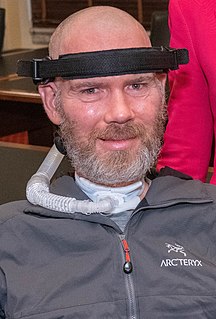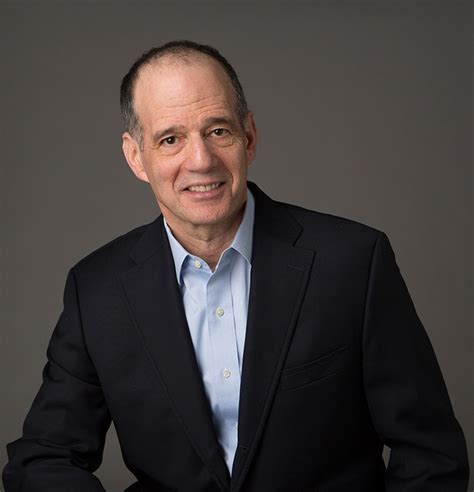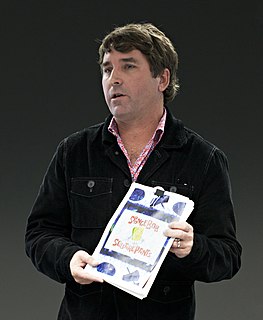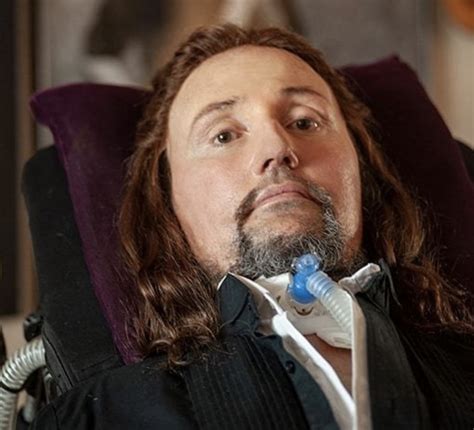A Quote by Steve Gleason
I have been diagnosed with Amyotrophic Lateral Sclerosis (ALS). It's a terminal disease with an average lifespan of two to five years post-diagnosis, and scientists don't know what causes it. ALS prevents your brain from talking to your muscles. As a result, muscles die. As a result, every 90 minutes people die. I am a person.
Related Quotes
I work at a non-profit called ALS Worldwide, where we work with ALS (also known as Lou Gehrig's disease) patients and families. It is often heavy work, but I'm grateful to be able to contribute to the ALS community. I'm constantly learning about science and medicine, and I have the honor of corresponding with patients throughout the world.
The feel of a good row stays with you hours afterward. Your muscles glow, your mind wanders from the papers on you desk and goes back, again and again, to that terrific power piece at the end of the workout when it felt as if you and the boat were flying, as if you legs were two cannons and your arms were two oars and the great lateral muscles of your back were pterodactyl wings and the brim of your baseball cap was a harpoon.
There are many occasions when the muscles that form the lips of the mouth move the lateral muscles that are joined to them, and there are an equal number of occasions when these lateral muscles move the lips of this mouth, replacing it where it cannot return of itself, because the function of muscle is to pull and not to push except in the case of the genitals and the tongue.
The difference between smartphones and cigarettes is this: a cigarette robs 10 minutes from your lifespan, but at least has the decency to wait and withdraw all that time in bulk as you near the end of your life - whereas a smartphone steals your time in the present moment, by degrees. Five minutes here. Five minutes there. Then you look up and you're 85 years old.
Das immer gegenwärtige Zufallselement im künstlerischen Erzeugungsprozeß erfaßt die generative Graphik modellmäßig durch den Einbau von Zufallsgeneratoren in die Programme. [. . .] Die Zufallsgeneratoren beteiligen sich an der Strukturierung der generierten Information, schaffen dabei unvorhersehbar Neues und erweisen sich dadurch als die zweite schöpferische Instanz neben dem Programmierer . . .


































